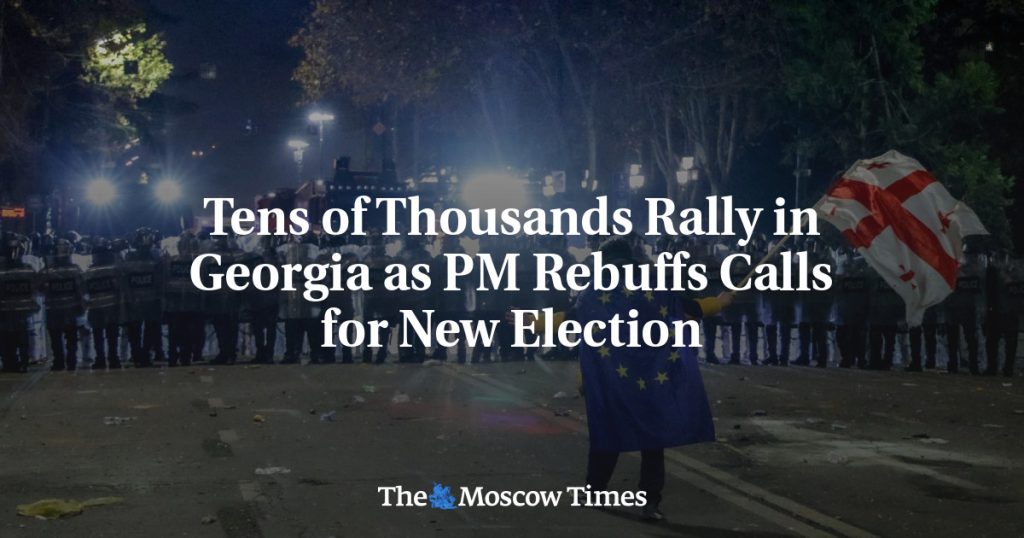Summarize this content to 2000 words in 6 paragraphs
Tens of thousands in Georgia on Sunday took part in a fourth straight day of protests against a government decision to shelve EU membership talks, as the prime minister rebuffed calls for new elections.
The Black Sea nation has been rocked by turmoil since the governing Georgian Dream party claimed victory in Oct. 26 parliamentary polls that the pro-European opposition said were fraudulent.
The opposition is boycotting the new parliament, while pro-EU President Salome Zurabishvili has asked the constitutional court to annul the election result, declaring the new legislature and government “illegitimate.”
Critics accuse Georgian Dream, in power for more than a decade, of having steered the country away from the EU in recent years and of moving closer to Russia, an accusation it denies.
On Thursday, Prime Minister Irakli Kobakhidze announced Georgia would not seek accession talks with the European Union until 2028, sparking a wave of protests in the capital Tbilisi and other cities.
The interior ministry has said about 150 demonstrators have been arrested in this latest protest wave, while the Georgian Young Lawyers’ Association put the number at 200.
Police in some instances have chased protesters through the streets, beating them and firing rubber bullets and tear gas.
Waving European and Georgian flags, tens of thousands rallied outside parliament on Sunday evening, AFP reporters saw.
Some demonstrators tossed fireworks and stones at riot police, while others banged on the metal door blocking parliament’s entrance.
‘Not my government’
Police later deployed water cannons, but were unable to disperse the crowds.
The leader of the opposition United National Movement party, Levan Khabeishvili, told journalists that he was attacked by around 15 masked police officers attempting to detain him, but he had managed to escape with the help of protesters.
“Georgian Dream… is a [pro] Russian government, and they must go,” said demonstrator Alexandre Diasamidze, a 32-year-old bartender.
Another protest took place outside the offices of Georgia’s Public Broadcaster (GPB), widely accused of acting as a propaganda tool for the ruling party.
The broadcaster conceded to the protesters’ demand to grant Zurabishvili airtime, which it had previously denied her.
Simultaneous protests took place in cities across Georgia.
Fueling popular anger, Kobakhidze ruled out new parliamentary elections, saying that “the formation of the new government based on the October 26 parliamentary elections has been completed.”














